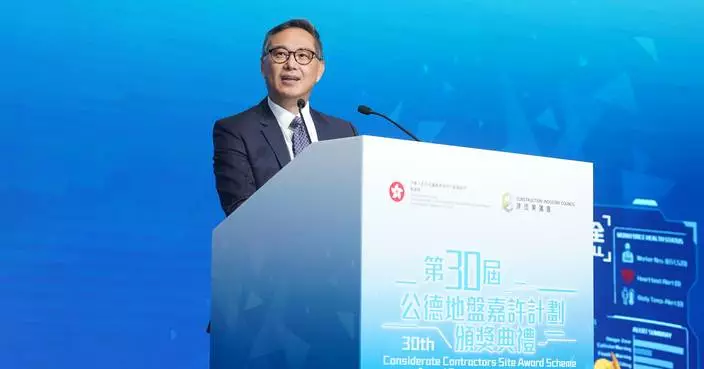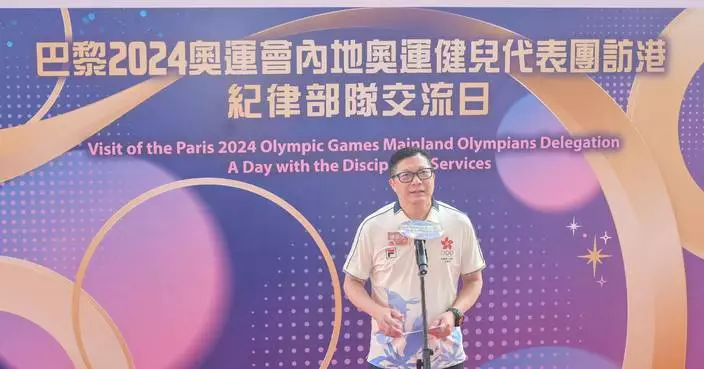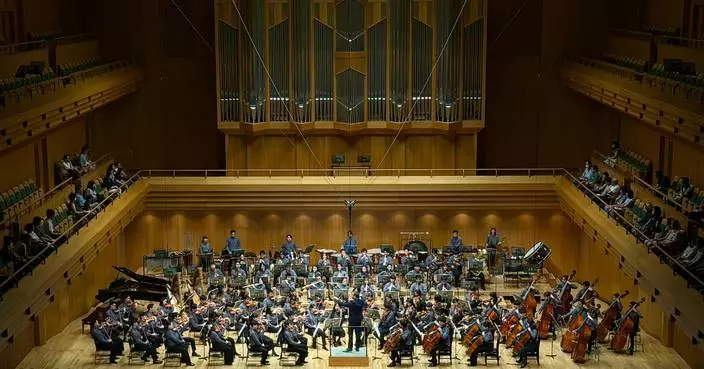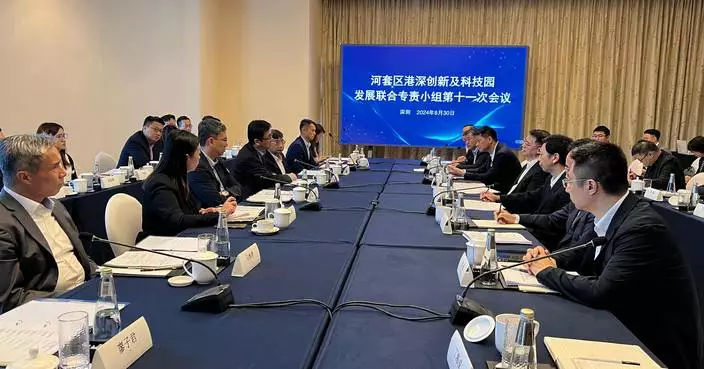Transcript of remarks by SCST at media session
Following is the transcript of remarks by the Secretary for Culture, Sports and Tourism, Mr Kevin Yeung, and the Chairman of the Board of the West Kowloon Cultural District Authority, Mr Henry Tang, at a media session on relaxation of Enhanced Financial Arrangement for the West Kowloon Cultural District to take forward residential development today (July 17):
Secretary for Culture, Sports and Tourism: The Chief Executive in Council yesterday (July 16) agreed to relax the Enhanced Financial Arrangement (EFA) for the West Kowloon Cultural District approved back in 2016, with a view to helping the West Kowloon Cultural District Authority to tide over the financial challenges in the short and medium term.
The Authority is a statutory body established in 2008.With a one-off upfront endowment of $21.6 billion, the Authority develops and operates the West Kowloon Cultural District on a financially self-sustaining basis.
With the completion of major cultural facilities in recent years, the West Kowloon Cultural District has become a cultural landmark in Hong Kong. The Culture, Sports and Tourism Bureau has all along maintained close liaison with the Authority, not only providing support for the development of arts and culture, but also closely liaising with the Authority on its financial situation and challenges.
The EFA was approved in 2016 for allowing the Authority to take forward hotel, office and residential development in the District under the Build-Operate-Transfer model, also known as the BOT model, enabling the Authority to maintain financial sustainability with additional stream of recurrent income from the hotel, office and residential development.
Nevertheless, market response to the BOT model was more lukewarm than expected. The Authority is now facing financial challenges as a result of the significant resources required to operate the arts and cultural facilities in the District. The mismatch with the revenue-generating commercial development and the pandemic in 2020 to 2022.
The Chief Executive in Council approved the sales of the residential developments within Zone 2 of the District by lifting the "BOT only" restriction for the residential developments. The maximum total residential gross floor area of 170 280 square metres permitted under the West Kowloon Cultural District Development Plan remains unchanged.
The commitment of the Authority to operate the West Kowloon Cultural District project on a self-financing basis also remains unchanged. In agreeing to the Authority's proposal, the Government will impose the following conditions, (a) a triennial cap on operating deficits and a cap on the percentage of staff cost to the total annual operating expenditure; (b) the requirement to demonstrate to the satisfaction of the Government the reasonableness of the cost estimates for any new capital projects before commitment; and (c) the requirement to consult the Development Bureau on tender schedules, setting the reserve price of the residential components of such tender and the tender award recommendations.
With the relaxation, the Authority will have sufficient funding to sustain 10 years of operation. During this period, the Authority will leverage its experience, expertise and assets accumulated over time to develop and implement revenue-generating and commercialisation measures. At the same time, the Authority will exercise strict control over operating costs, fulfilling its commitment to operate the West Kowloon Cultural District project on a self-financing basis.
Reporter: Firstly, for the Secretary, to what extent would the residential sale proposal help ease the financial crisis at the West Kowloon Cultural District? And what steps would the Government takes to ensure the hub's financial stability and independence? And for Mr Tang, does the Authority still plan to reduce the number of opening days or raise ticket prices with the new funding option? And also, what KPIs (Key Performance Indicators) and control mechanisms are you looking for? Thank you.
Chairman of the Board of the West Kowloon Cultural District Authority: Sorry, what opening dates are you referring to?
Reporter: Because you earlier mentioned that the hub would consider to reduce the number of opening days of the museums if the funding proposal is not allowed. So would you still consider to do that? And also what kind of KPIs are you looking for at the moment? Thank you.
Secretary for Culture, Sports and Tourism: I would never say it's a financial crisis. I would say we are facing some financial challenges in the operation of the West Kowloon Cultural District. And as I explained in my opening remarks, with the relaxation, the West Kowloon Cultural District, the residential development now in the West Kowloon Cultural District could be disposed on a sales mode instead of the BOT. In 2016, when we decided that under the enhanced financial arrangement, there were some 170 odd thousand square metres residential development already given to the West Kowloon Cultural District Authority, to generate an additional stream of income. But in the past few years, with very great effort of the Authority, the BOT tender did not seem to meet with the appetites of the contractors or developers in Hong Kong. So the current proposal is still making use of the 170 000 square metres residential property, but in a different way. Instead of having a constant stream of income in future, we are now cashing in for a lump sum upfront, which could help release the financial challenges or the requirement at present, which I think will be able to sufficiently, as I said in the opening remarks, sufficient to sustain the Authority's operation for at least 10 years, which will provide ample time for us to, as the Chairman has said, for them to develop further on the various commercialisation as well as industrialisation of the arts and cultural activities that the Authority has been doing in the past two or three years, which we are confident that the Authority will be able to come up with more proposals in the coming years.
Chairman of the Board of the West Kowloon Cultural District Authority: When I said, If the Government does not approve our plan, then we will have to think of more drastic measures in order to control our costs, including, but not exclusive to, closing certain number of dates in our museums. And that was a worst-case scenario. So therefore, considering that the Government has been very kind, and we have both agreed to the certain KPIs that we adhere to, we won't have to take any of those drastic measures. We will be able to continue to operate, but we will continue to operate as we have always done under a discipline that we only spend what we need to spend, and we will control our cost diligently and very seriously.
At the same time, we will continue to look for ways to increase our revenue, such as we will review some of the cost recovery measures that we are now charging, such as our charging scheme. And secondly, we will also think of new ways to make money. For example, in M+ there are a whole bunch of ways to make money. Let's say the screen in the front, we will consider whether we want to rent it out for rental income, for arts and culture-related materials.
At the same time, right now, I can go to a major museum in London or in New York and rent a gallery for an event. But in Hong Kong, I can't do that. So, there are ways that I can make more revenue without disrupting the operations of the museums, and I will look for ways to do that.
(Please also refer to the Chinese portion of the transcript.)

Source: AI-generated images







